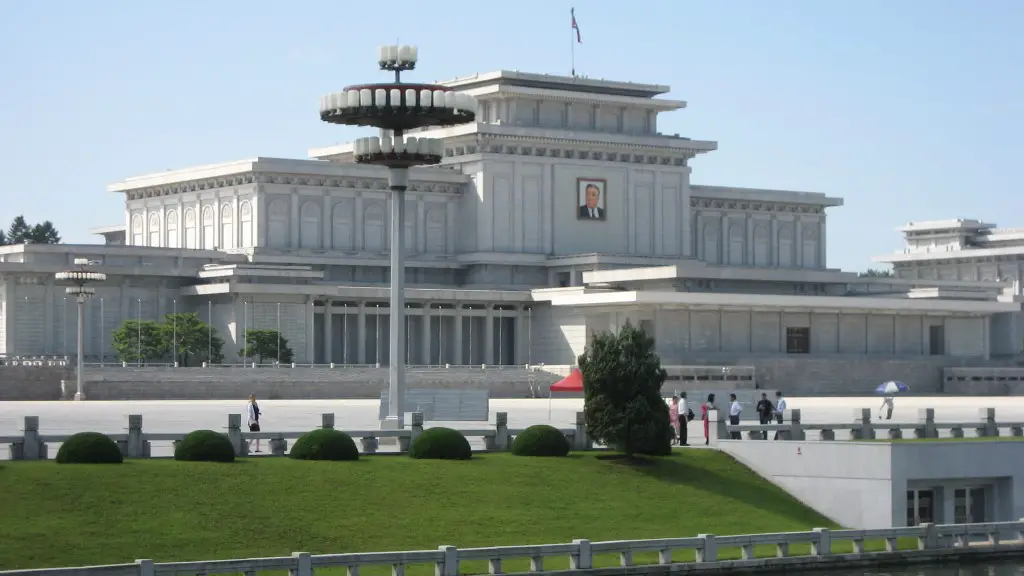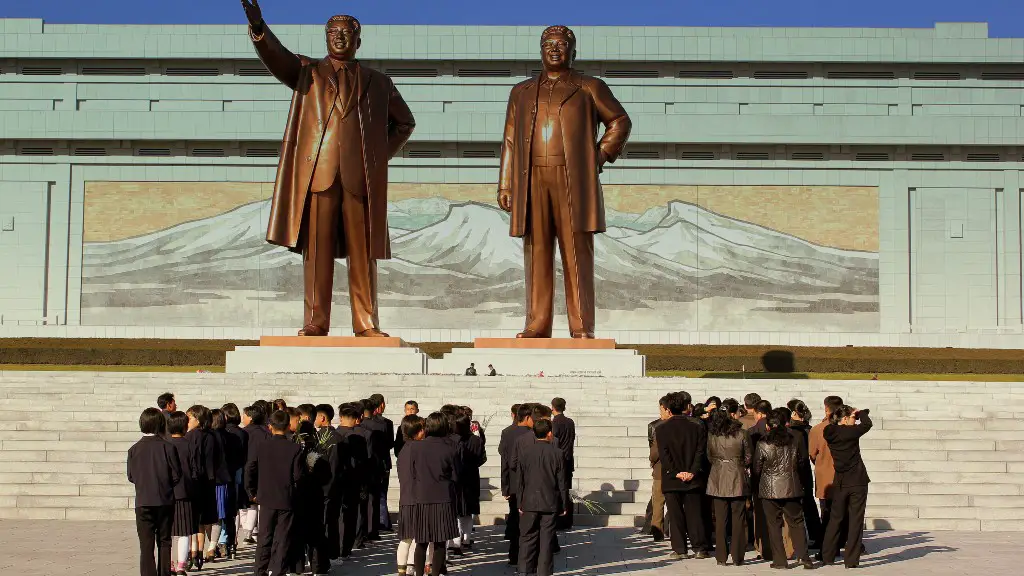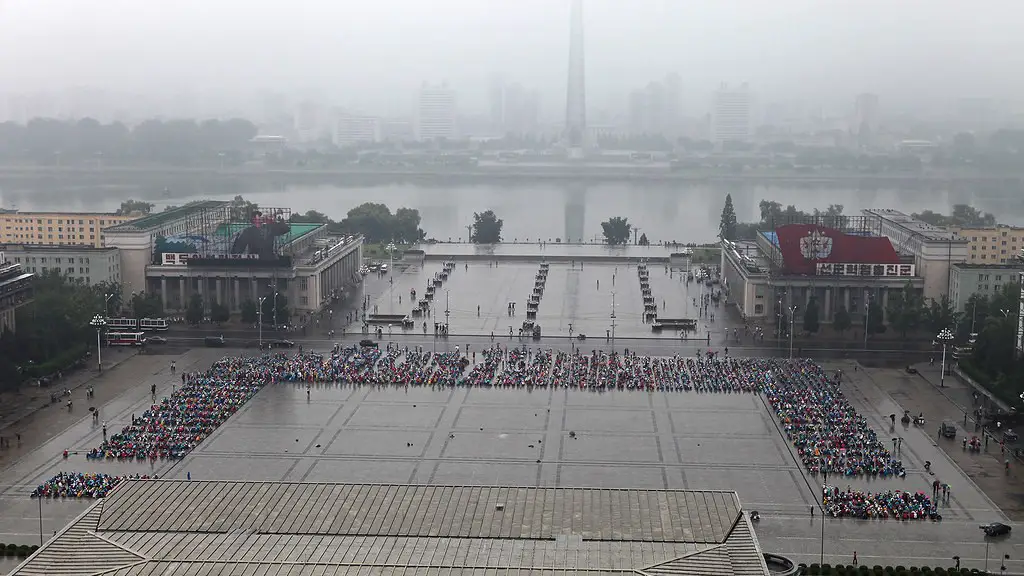Introduction
The opinion of North Korea held by other countries is a complex and dynamic topic, as there have been many developments in recent years. North Korea is one of the most secretive nations in the world and their relationship with the rest of the world remains uncertain. This article will provide an overview of what other countries think of North Korea, highlighting the different perspectives, challenging the various stereotypes, while providing insight into the dynamic geopolitical environment.
Geopolitical Background
North Korea is a sovereign state located in East Asia, and bordered by China and Russia to the north and south respectively. It is a one-party state, led by the authoritarian Kim Jong Un since 2011 and is a nuclear power. It has long been regarded as a hostile nation, largely isolated from the global community due to its autocratic leadership and hostile policies. It has engaged in a number of international incidents, from kidnappings of foreign citizens in the 1970s, to launching missiles into neighbouring countries and developing nuclear weapons in violation of international law. As a result, North Korea has been subject to numerous economic and political sanction from the United Nations, in an effort to change the country’s policies and encourage engagement in the international arena.
China’s Perspective
China is North Korea’s most important ally and has provided financial, political and military support to North Korea for many decades. China has historically seen North Korea as an important buffer state between it and the West and the two have a close diplomatic relationship. Despite the numerous issues between North Korea and the rest of the world, China has remained supportive and has called for a peaceful resolution to the nuclear crisis. In recent years, China has increased its economic ties with North Korea, as it seeks to improve its economy and reduce its reliance on foreign aid.
South Korea’s Perspective
South Korea has a very different opinion of its northern neighbour. Throughout the post-war era, South Korea has accused North Korea of human rights violations, aggressive foreign policy and military provocations. South Korea is a staunch ally of the United States and the two countries have a mutual defence agreement. South Korea has been critical of North Korea for its nuclear proliferation, having called for an end to the country’s nuclear weapons programme. In recent years, however, South Korea has been experimenting with closer diplomatic ties with North Korea, with the hope of fostering greater understanding and ultimately reunification of the two Koreas.
United States’ Perspective
The United States has had a long and complicated relationship with North Korea. Throughout the post-war period, the US has maintained a policy of containing North Korea, placing economic sanctions and military pressure on the country as part of its ‘maximum pressure’ strategy. In recent years, however, the US has shown signs of allowing for a more diplomatic approach, engaging in peace talks with North Korea in an effort to denuclearize the Korean peninsula. The current US administration has been criticized for its failure to engage with North Korea on a diplomatic level, which has put the peace process in jeopardy.
European Union’s Perspective
The European Union has largely been supportive of the diplomatic process with North Korea, however, it has been critical of the country’s human rights violations. The EU has also voiced its concern over North Korea’s nuclear proliferation and its continued missile testing, and has called for a peaceful resolution to the conflict. Recently, the EU has voiced its support for the denuclearization of the Korean peninsula, as well as its commitment to aiding the North Korean people if a peaceful agreement can be reached.
Russia’s Perspective
Russia has a long history of relations with North Korea. Russia has traditionally been a firm ally and economic supporter of North Korea, providing political and military support. Russia has also recently increased its economic ties with North Korea, investing in various infrastructure projects. Russia has been critical of the US ‘maximum pressure’ policy, arguing that it could lead to further destabilization and has instead supported the diplomatic process and negotiations between the US and North Korea.
International Community’s Perspective
The international community’s opinion of North Korea is largely dependent on their regional allegiances. Countries in the West have traditionally taken a hard stance against North Korea, harshly criticizing its human rights violations, nuclear proliferation and aggressive foreign policies, while countries in the East have favoured a diplomatic approach, focusing on aid and dialogue instead of sanctions and military pressure. In recent years, however, there has been a growing consensus that close diplomatic ties, economic investment and humanitarian aid are the key to resolving the conflict with North Korea and improving relations between the two nations.
Sanctions and Humanitarian Aid
The international community has imposed a wide range of economic sanctions on North Korea in attempt to persuade the country to change its policies and comply with international law. Despite these sanctions, it has been argued that humanitarian aid is a better means of engaging and improving relations with North Korea. Humanitarian aid is seen as a necessary means of assisting the North Korean people and helping to improve the country’s economy and standards of living.
Diplomatic Engagement
The opinion of North Korea held by other countries can be largely summarised as one of wariness and caution. North Korea is seen as a potentially dangerous actor and its history of aggression and nuclear proliferation have caused other countries to be wary of engaging with the country. However, in recent years, more countries have adopted a diplomatic approach, seeing dialogue and cooperation as the best way to resolve the conflict and improve relations with North Korea.
Economic Investment
The development of North Korea’s economy is seen by many countries as key to the nation’s stability and prosperity. The international community has been reluctant to invest in North Korea, due to various diplomatic and economic issues, but a number of countries, particularly in the East, have begun investing in infrastructure and investment projects in recent years.
Future of North Korea
The future of North Korea is unclear, as its relationship with the rest of the world is highly unpredictable. Despite international sanctions and harsh rhetoric, there has been some progress towards resolving the nuclear crisis and improving relations with the country. China, South Korea and Russia have been particularly active in engaging diplomatically with North Korea, and have become more invested in the nation’s economy and development. However, it is uncertain how long this current trend of diplomatic engagement will last, or what the long term effects will be.
Political Repercussions
The opinion of North Korea held by other countries has far-reaching political implications, as the nation’s behaviour will determine the way it is treated internationally. This in turn will affect the policies of other countries towards North Korea and the political dynamics of the region. As North Korea continues to be seen as a nuclear threat and an unpredictable actor, many countries have adopted a cautious stance, focusing their efforts on diplomacy and economic incentives instead of economic sanctions or military pressure.
Regional Cooperation
In recent years, there has been increased regional cooperation when it comes to dealing with North Korea. South Korea, China and Russia have all taken steps to engage in diplomatic dialogue and foster closer ties with North Korea. This cooperation is seen as essential in resolving the conflict, as well as improving North Korea’s human rights record and economic situation.
Conclusion
The opinion of North Korea held by other countries is a complex one, and is likely to continue to evolve in the future. Countries in the East have generally favoured a diplomatic approach and closer economic ties, while countries in the West have focused on containment and sanctions. Although the international community views North Korea as a nuclear threat, there have been efforts to resolve the crisis diplomatically, which has been met with some success. Ultimately, the future of North Korea depends on the actions of the international community and the various actors involved in the diplomatic process.



